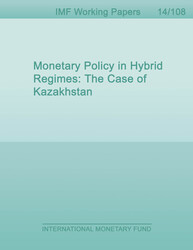
Monetary Policy in Hybrid Regimes: The Case of Kazakhstan
This paper analyzes the monetary policy framework in Kazakhstan. The authorities have been successful in containing inflation in the context of a managed exchange rate regime. Over the past two years, the central bank has taken steps to enhance its ability to regulate liquidity in the financial system. However, the current policy interest rate does not properly signal the stance of policy, reflected in a weak transmission from the policy rate to money market interest rates. With the use of a stylized model, the paper studies the macro determinants of money market interest rates under the current framework, and illustrates both the benefits and challenges of active interest rate policy. The model shows that limited use of instruments to steer short-term interest rates weakens the framework's ability to counteract shocks. Finally, the paper explores the implications of varying degrees of exchange rate flexibility for interest rate policy and open market operations.
Publication date: June 2014
ISBN: 9781498340724
$18.00
Add to Cart by clicking price of the language and format you'd like to purchase
Available Languages and Formats
| English |
Prices in red indicate formats that are not yet available but are forthcoming.
Topics covered in this book
This title contains information about the following subjects.
Click on a subject if you would like to see other titles with the same subjects.
Economics- Macroeconomics , Economics / General , International - Economics , Monetary Policy , Interest Rate , Money Market , Exchange Rate
Summary
Copyright © 2010 - 2026
Powered by:
AIDC



